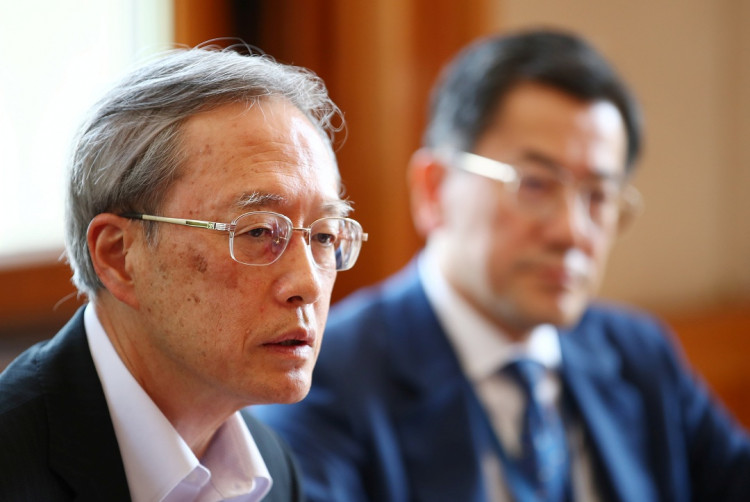While the eyes of the world are glued to the outcome of the year-long trade dispute between China and the United States, another trade war is now escalating in Asia.
The trade dispute between South Korea and Japan is now escalating to the point where it is threatening to change the tech landscape globally.
South Korea issued a warning late last week for Japan to cease its escalation of the trade dispute. The disagreement between both nations could severely affect both countries trade relationship estimated to be worth more than $80 billion.
The escalation of the dispute between both nations also threatens to upend the global supply chain for devices such as smartphones and home appliances. South Korea is Japan's third-largest trading partner, exporting billions of dollars worth of goods each year.
Late last week, South Korea's Foreign Ministry called on Japan to lift the trade sanctions it had imposed on three chemical materials needed by South Korean tech manufacturers.
The three chemicals, fluorinated polyamides, photoresists, and hydrogen fluoride, are produced in Japan and exported to South Korea.
Japan imposed sanctions on the three materials earlier this month likely as a response to South Korea's actions involving a court's decision that ordered Japanese companies to pay compensations to former forced laborers during the early 20th century. Tensions between both countries escalated as the issue of Japan's colonial rule over the peninsula was resurrected by the South Korean court's ruling.
Apart from placing sanctions on the chemicals, Japan is reportedly also considering removing South Korea from its so-called white list. The list includes countries that can actively trade with Japan with minimum restrictions. Reports citing sources close to the matter have revealed that Japan could announce a decision as early as next week.
If Japan does remove South Korea from its white list, companies that want to purchase the chemicals would have to acquire government licenses. Japan argues that apart from being used in the manufacturing of computer chips, the chemicals could also potentially be used for military and weapons applications by South Korean companies.
The restrictions could have a lasting negative impact on the global tech industry, worsening the already difficult situation brought about by slowing demand. Japan's restrictions will negatively affect South Korean companies such as Samsung and SK Hynix, which produce the bulk of the world's memory chips.
The computer chips produced by these companies are used by tech giants such as Huawei and Apple to power products ranging from smartphones to smart electric vehicles.






